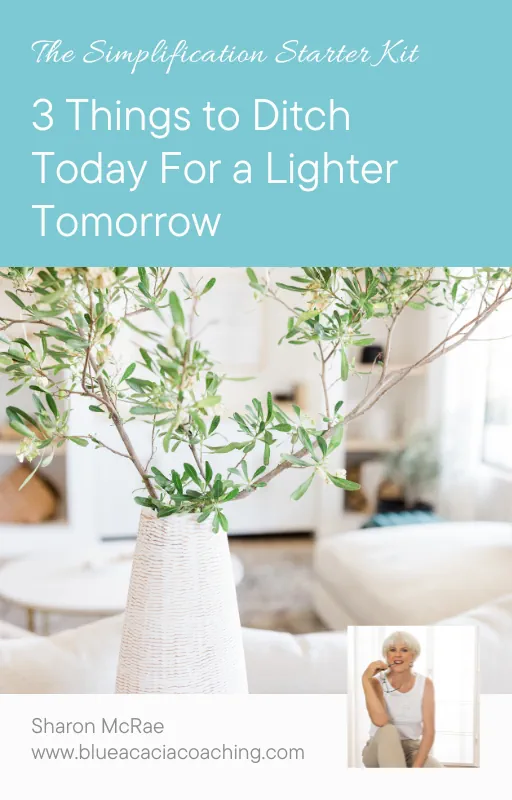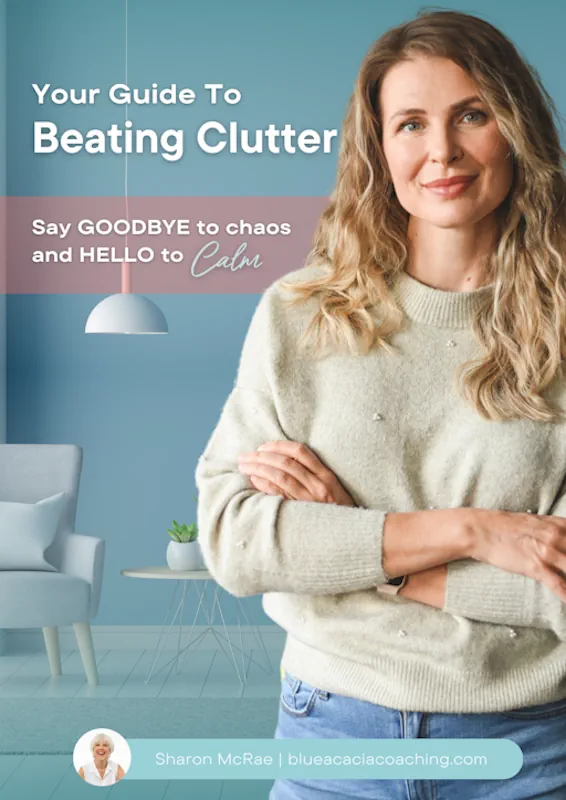
We go on multiplying our conveniences only to multiply our cares. We increase our possessions only to the enlargement of our anxieties.
Anna C. Brackett
Those words are from a woman who died more than 100 years ago. But her words are truer now than ever. The average person today has access to conveniences and possessions that would stagger the imagination of someone who lived a century ago.
In a previous post, I asked you to think about this: What one thing could you start doing, that if you did regularly, would make a significant difference in your life?
In the spirit of Anna Brackett’s words, I want to flip that question and ask you: What one thing could you stop doing that would make a significant difference in your life?
For this discussion, the term stop also infers remove and reduce. So, what is one thing that you could stop, remove, or reduce in your life that would bring about tremendous benefits? Take a moment to really think about it.
In a world where more is never enough, here are three areas where less could be better: our environment, our schedule, and our diet.
1. Power of Subtraction – Our Environment
One can furnish a room very luxuriously by taking out furniture rather than putting it in. Francis Jourdain
Our home is probably the easiest place to find something to subtract. Hands up everyone, who has clothes or shoes in their wardrobe that they don’t wear but continue to hang on to.
Are there piles of books or magazines taking up valuable domestic real estate? Do you have furniture that is never used?
How many different types or brands of toiletries lurk in your bathroom cabinet? Has your car been evicted from the garage to make room for stuff?
When deciding what to subtract from your environment, some organizing experts suggest that you choose something sizeable. That way you will notice the impact. Tossing away a few pairs of old socks is not likely to make much of a dent. Even so, there’s a lot to be said for starting small. Small steps are better than no steps at all.
What if the only reason something continues to have a space in your home is the memories tied up with it? Like a gift that is not to your taste but was from someone special. Or things your kids made over the years. One suggestion is to take photographs of them. You get to keep the memories and free up your space and attention.
The sunk-cost fallacy
What if you can’t bring yourself to part with something because you paid good money for it, even though you don’t like it, use it, or need it? This is known as the sunk-cost fallacy. A sunk cost is money that has already been paid and cannot be recovered. We may reason that we don’t want that money to go to waste, but the truth is the money is already spent. The only thing that is being wasted now is our time, energy, and space.
James Clear, author of the excellent book Atomic Habits, makes this salient point about the power of things:
“Look around your environment. Rather than seeing items as objects, see them as magnets for your attention. Each object gently pulls a certain amount of your attention toward it. Whenever you discard something, the tug of that object is released. You get some attention back.”
You also get some of your space back. You free up your time and energy and reduce stress and frustration. Now, wouldn’t that make a significant difference in your life!?
2. Power of Subtraction – Schedule
Staying busy can help us fight negative emotions and keep positive and motivated. But we can be too busy and that’s not good. Ask yourself, do I have time for what is truly important? That includes yourself. Do you have a space in your own schedule?
If not, something needs to give. What is something you could stop, reduce, or remove from your schedule that would make a significant difference in your life?
Perhaps you could politely excuse yourself from engagements that are not the best use of your time and resources. Before saying yes to a future commitment, ask yourself, do I really have the time to do this justice? It’s ok to say No or Not this time, but thanks for thinking of me.
Here are some other suggestions to declutter your schedule:
- Reduce the amount of news you watch
- Cap the amount of time you spend on social media
- Unfollow accounts that do not truly contribute to the quality of your life
- Ditch hobbies that guzzle time and money but do not help you to thrive
- Have a regular digital detox day. Leave your phone in the car while you spend time in nature. Or use the Do Not Disturb function or put the phone on silent to enjoy some notification-free time
- Unsubscribe from marketing emails and ignore those asking for feedback
When you regain control of your schedule, it no longer controls you. You get to breathe. You get to create the space for things that will make a significant difference in your life. And who doesn’t want that?!
3. Power of Subtraction – Diet
There are many ways to increase health and well-being by adding things to our diet – more water, fruits and vegetables, healthy fats, and so on. But what is something you could stop, reduce, or remove from your diet that would make a significant difference in your life?
I’m not talking about a complete overhaul of our eating habits here. While that would likely bring marvellous results, it is simply not sustainable for most of us. But targeting just one thing? That’s more realistic.
Here are a few ideas to get you thinking:
- Reduce how much sugar you consume. This one’s a no-brainer: anyone would benefit from less sugar in their diet. Could you drink your tea or coffee without sugar, or with less? Maybe you could replace sugary drinks with sparkling water, and fruit juices with real fruit. Try skipping dessert or, if you are in the habit of eating dessert frequently, restrict yourself to once or twice a week. The same goes for sweet treats. I try to leave those just for weekends. Not always successfully, but that’s what I aim for.
- Reduce how much or how often you drink alcohol.
- Reduce portion sizes. Using smaller plates makes it easier to reduce the amount of food you eat at a meal. And eating more slowly allows the body sufficient time to register when you’re full, so that you don’t overeat.
- Stop after-dinner snacking. (Evening TV advertisements don’t help; try to avoid them!)
On that point of eating less, here’s an idea that may be new to you: removing one meal a day.
A few years ago, a friend introduced me to a concept called 16/8 intermittent fasting. Basically, it involves fasting for 16 hours a day and eating during the remaining 8 hours. I was sceptical at first but after researching it, I decided to give it a go.
I chose to skip breakfast and have only fluids in the morning. Then I begin eating at around 11.30 am. I know that breakfast is widely held to be the most important meal of the day but in my case, my body is simply thriving without it.
That one change to my diet has definitely made a significant difference in my life.
Google 16/8 Intermittent Fasting if you want to know more, including who should not consider trying it. (It’s not for everyone!)
And finally…
According to professional organizer, Peter Walsh,
Clutter isn’t just the stuff in your closet. It’s anything that gets between you and the life you want to be living.
Have you identified something that is standing between you and the life you want?
What one thing could you subtract from your environment, your schedule, or your diet that would make a significant difference in your life?
Start small if you need to, but start now.
Photo by Etienne Girardet on Unsplash

